Introduction: Chipmunks and Their Love for Bird Seed
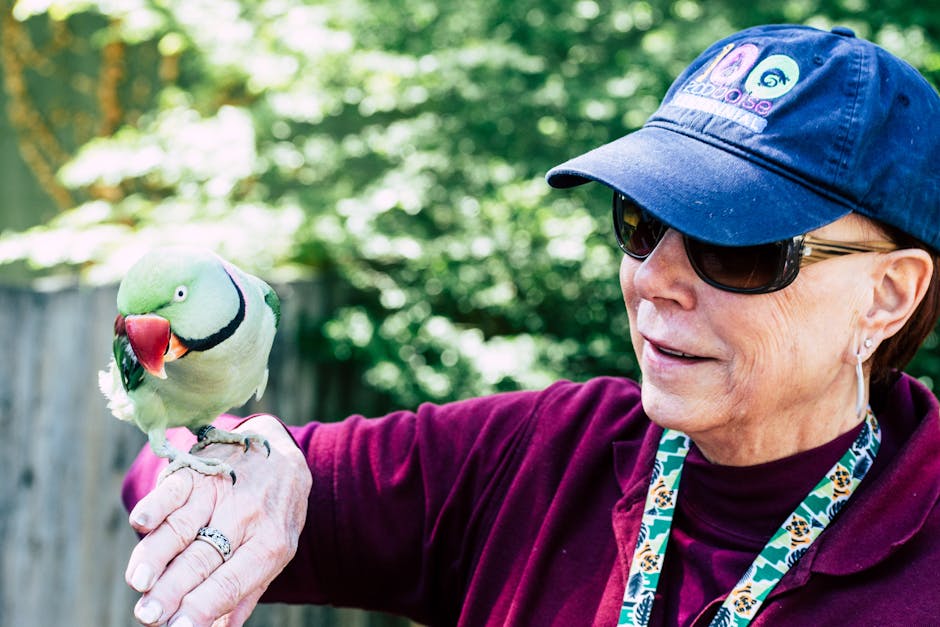
Chipmunks, those delightful and endearing rodents belonging to the squirrel family, have captured the hearts of nature enthusiasts with their playful antics and charming appearances. Native to North America, these lively creatures are known for their striped fur patterns and bushy tails.
As herbivores, chipmunks have a diverse diet that includes seeds, nuts, fruits, berries, and grains. However, they have developed a particular fondness for bird seed due to its high nutritional value and easy accessibility. The abundance of energy provided by bird seed makes it an irresistible choice for chipmunks.
While chipmunks’ affinity for bird seed may seem harmless, it can pose several challenges for bird enthusiasts. These skilled climbers can effortlessly access bird feeders that are not properly secured, depleting the seed intended for feathered visitors. Furthermore, their foraging behavior can lead to damage, as they persistently gnaw and claw at feeders, requiring frequent repairs or replacements. The territorial nature of chipmunks may even result in aggression towards birds, disrupting the peaceful feeding environment.
Understanding why chipmunks are attracted to bird seed is crucial in developing effective strategies to keep them away from feeders. By exploring their dietary preferences and behavioral patterns, we can implement measures to discourage chipmunks while still providing a welcoming space for our feathered friends.
In the following sections, we will discuss the benefits of keeping chipmunks away from bird feeders, explore physical barriers and natural repellents to deter chipmunks, and provide tips for feeding birds while minimizing chipmunk interference. By the end, you will have a comprehensive understanding of how to maintain a chipmunk-free environment around your bird feeders, ensuring an enjoyable bird-watching experience for both you and the avian visitors.
The Benefits of Keeping Chipmunks Away From Bird Feeders
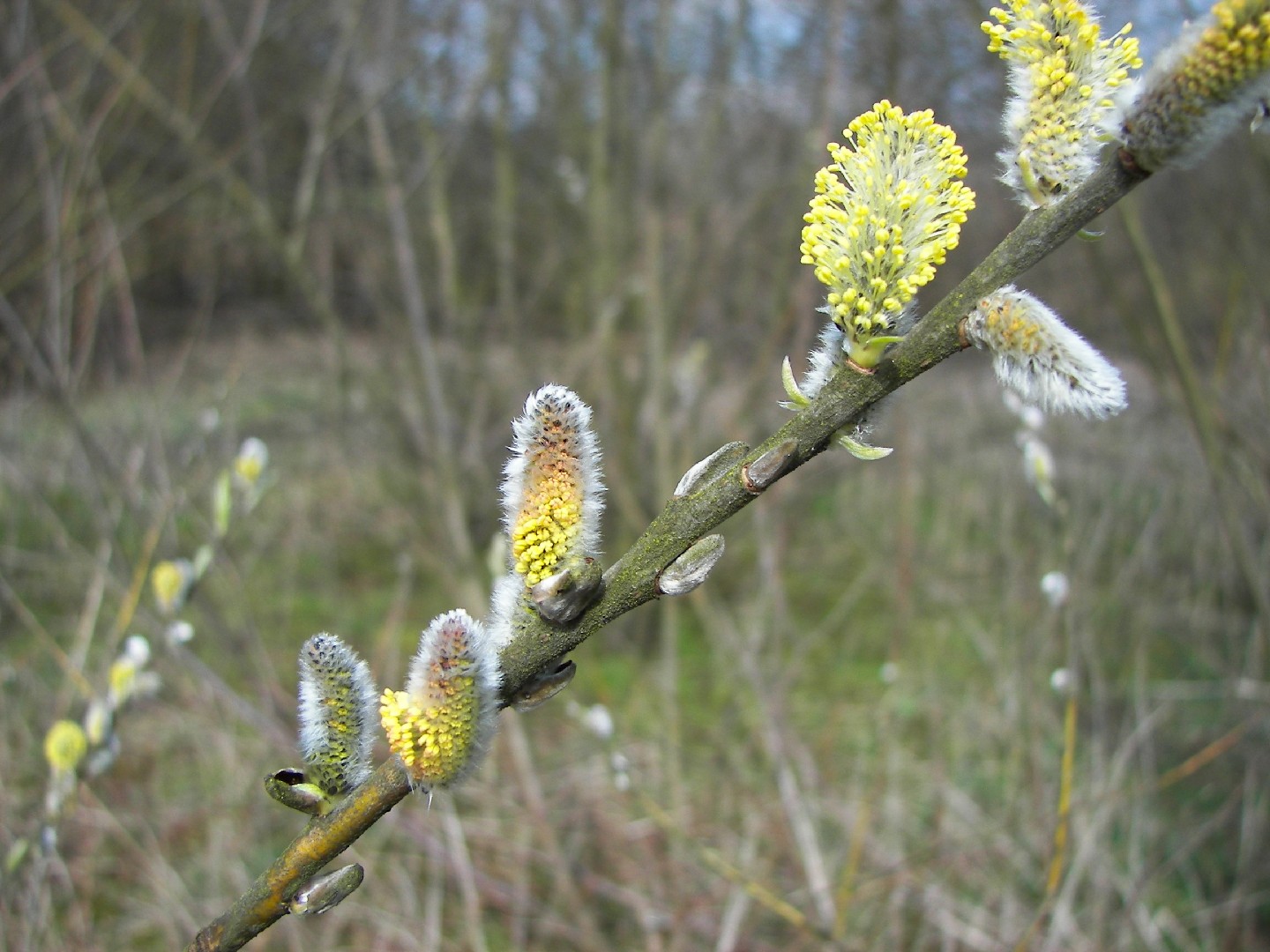
While chipmunks may be cute and entertaining, their presence around bird feeders can cause a range of issues. By keeping chipmunks away, you can enjoy numerous benefits that enhance your bird feeding experience.
1. Protecting Bird Food
Chipmunks are notorious raiders of bird feeders, consuming a significant amount of bird food intended for other species. By implementing strategies to deter chipmunks, you ensure that the food you provide is exclusively available for birds. This encourages a diverse range of bird species to frequent your feeder, enhancing your bird-watching opportunities.
2. Reducing Seed Waste
Chipmunks have a natural instinct to scatter and hoard seeds, which often leads to wastage and potential contamination. When chipmunks are kept away from bird feeders, there is less seed wastage, resulting in a more efficient use of bird food. This saves you money by reducing the frequency of refills and ensures that the seed remains fresh and uncontaminated for the birds to enjoy.
3. Preventing Damage to Bird Feeders
Chipmunks‘ agility and persistent chewing can cause structural damage to bird feeders over time. By implementing measures to keep chipmunks away, such as physical barriers or natural repellents, you can preserve the integrity of your feeders. This helps extend their lifespan and eliminates the need for frequent repairs or replacements, saving you time and money in the long run.
4. Minimizing Disease Transmission
Chipmunks can carry various diseases and parasites, including ticks and fleas, which can pose a threat to the health of birds visiting your feeders. By deterring chipmunks from accessing the feeders, you reduce the risk of disease transmission. This promotes the overall well-being of the bird population in your area and contributes to a healthier ecosystem for both birds and other wildlife.
5. Protecting Landscaping and Property
Chipmunks’ burrowing habits can cause damage to gardens, lawns, and even the foundation of buildings. By redirecting chipmunks away from bird feeders, you minimize the likelihood of their burrowing activities near your property. This protects your landscaping and prevents potential damage to your home or other structures, ensuring a harmonious coexistence between wildlife and your property.
By understanding the benefits of keeping chipmunks away from bird feeders, you can implement effective strategies to create a bird-friendly environment while mitigating the challenges posed by these adorable yet troublesome creatures. In the following sections, we will explore different physical barriers and natural repellents that can help you keep chipmunks at bay.
Physical Barriers to Keep Chipmunks Away


Implementing physical barriers can effectively deter chipmunks from accessing bird feeders. Consider the following methods:
Fencing
Install a sturdy fence around the bird feeder area using wire mesh or hardware cloth with small openings. Bury the fence at least 6 inches underground to prevent chipmunks from burrowing underneath.
Baffles
Attach a cone-shaped or dome-shaped baffle to the feeder pole or hanging apparatus. This creates a slippery surface, making it difficult for chipmunks to climb up or reach the feeder.
Squirrel-Proof Feeders
Invest in squirrel-proof bird feeders designed to deter small mammals like chipmunks. These feeders feature mechanisms such as weight-activated perches or cages that prevent chipmunks from accessing the food.
Elevated Feeders
Mount the bird feeder on a high pole or hang it from a branch at least 5 feet above the ground. Position it at least 10 feet away from objects that chipmunks could jump from, making it harder for them to reach the feeder.
Grease or Deterrents
Apply a grease or deterrent to the feeder pole or specific areas of the feeder. This creates a slippery surface that chipmunks find challenging to climb. Various commercial products are available for this purpose.
Implementing these physical barriers significantly reduces chipmunk activity around bird feeders, ensuring a safe and undisturbed feeding environment for birds.
Natural Repellents to Keep Chipmunks Away
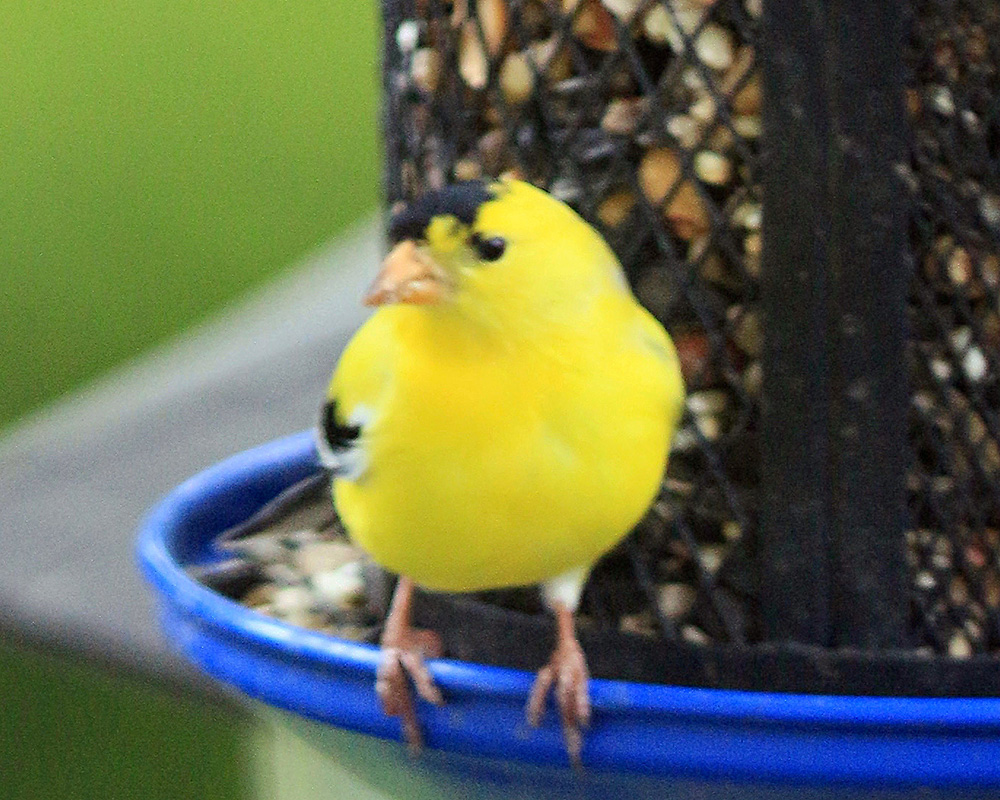

Natural repellents offer an environmentally friendly solution to deter chipmunks from bird feeders. Consider the following options:
Peppermint
Plant peppermint near your bird feeders or spray peppermint oil around the area. The strong scent repels chipmunks. Remember to refresh the scent regularly.
Cayenne Pepper
Sprinkle cayenne pepper around the base of your bird feeders or mix it with birdseed. Chipmunks dislike the spicy substance. Take care to avoid direct contact with birdseed.
Garlic
Crush garlic cloves and spread them around the perimeter of your bird feeders. The pungent odor acts as a natural chipmunk repellent. Alternatively, make a garlic spray by steeping crushed garlic in water overnight and spraying the solution in affected areas.
Predator Urine
Apply predator urine, such as that of foxes or coyotes, near your bird feeders. Chipmunks are wary of the scent. Reapply periodically to maintain effectiveness.
Mothballs
Strategically place mothballs around your bird feeders or in chipmunk frequented areas. The strong odor repels chipmunks. Exercise caution as mothballs contain toxic chemicals.
By employing these natural repellents, you can create an environment that discourages chipmunks from approaching your bird feeders. Ensure the chosen repellents do not harm the birds. In the next section, we’ll provide tips on feeding birds while effectively keeping chipmunks at bay. Let’s explore how you can enjoy the presence of beautiful birds without interference from chipmunks.
Physical Barriers to Keep Chipmunks Away
To deter chipmunks from accessing bird feeders, you can use physical barriers. Here are a few strategies to consider:
Wire Mesh or Cages
Create a barrier around the bird feeder using wire mesh or cages. Make sure the openings are small enough to keep chipmunks out while allowing birds to access the feeder easily. Secure the mesh or cage firmly to prevent chipmunks from squeezing through any gaps.
Baffles
Install baffles above or below the feeder to discourage chipmunks from climbing up the supporting pole or post. These cone-shaped or dome-shaped devices, typically made of metal or plastic, make it challenging for chipmunks to access the feeder.
Natural Repellents to Keep Chipmunks Away
In addition to physical barriers, you can use natural repellents to discourage chipmunks from raiding bird feeders. Here are a few options:
Squirrel Repellent Sprays
Apply squirrel repellent sprays to the bird feeder or the surrounding area. These sprays often double as chipmunk repellents and contain natural ingredients like hot pepper, garlic, or predator urine, which chipmunks find unpleasant. Follow the product instructions for proper application and reapplication.
Plants with Repellent Properties
Certain plants possess repellent properties that can help deter chipmunks. For example, planting daffodils, marigolds, or hyacinths near the bird feeder may discourage chipmunks from approaching. These plants emit scents or contain compounds that chipmunks find unappealing. However, the effectiveness of plant-based repellents may vary, and additional measures may still be necessary.
Tips for Feeding Birds While Keeping Chipmunks Away
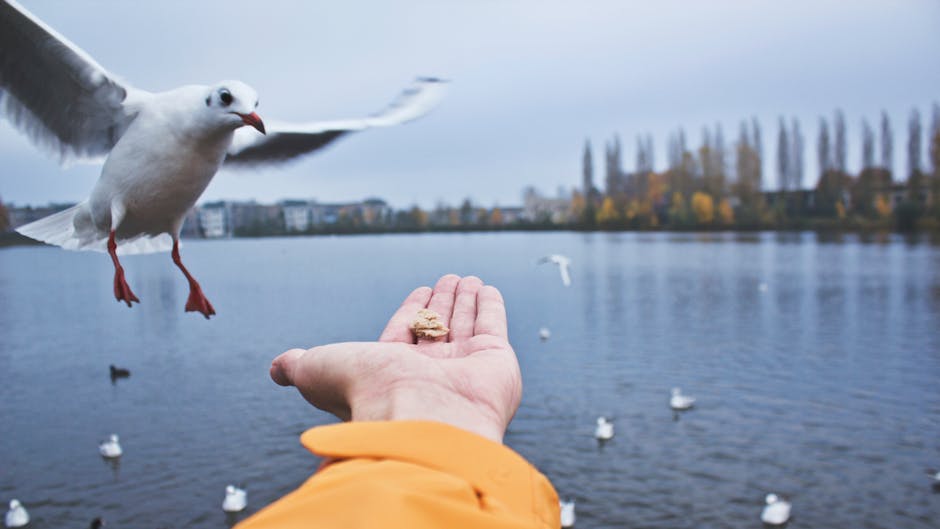
Feeding birds while keeping chipmunks at bay requires a combination of strategies. Here are some helpful tips:
Select Chipmunk-Resistant Bird Feeders
Invest in bird feeders designed to be chipmunk-resistant. Look for feeders with mechanisms that prevent chipmunks from accessing the birdseed, such as weight-activated perches that close off the feeding ports when a heavier animal lands on them.
Strategic Feeder Placement
Position the bird feeder on a high pole or post to discourage chipmunks from reaching it. Ensure that the feeder is at least 10 feet away from any trees or structures that chipmunks can use as launching pads.
Clean Up Spilled Birdseed Regularly
Regularly clean up any spilled birdseed underneath the feeder, as it can attract chipmunks and other pests. Use a broom or rake to sweep away leftover seeds, and dispose of them in a secure trash container.
Choose Chipmunk-Unappealing Birdseed
Opt for birdseed blends that are less appealing to chipmunks. Since chipmunks are particularly fond of sunflower seeds, consider using seed blends that contain fewer sunflower seeds or exclude them entirely. This can reduce the temptation for chipmunks to visit the feeder.
By implementing these tips and strategies, you can maintain a bird-friendly environment while minimizing chipmunk interference.
Conclusion: Keeping Chipmunks Away From Bird Feeders
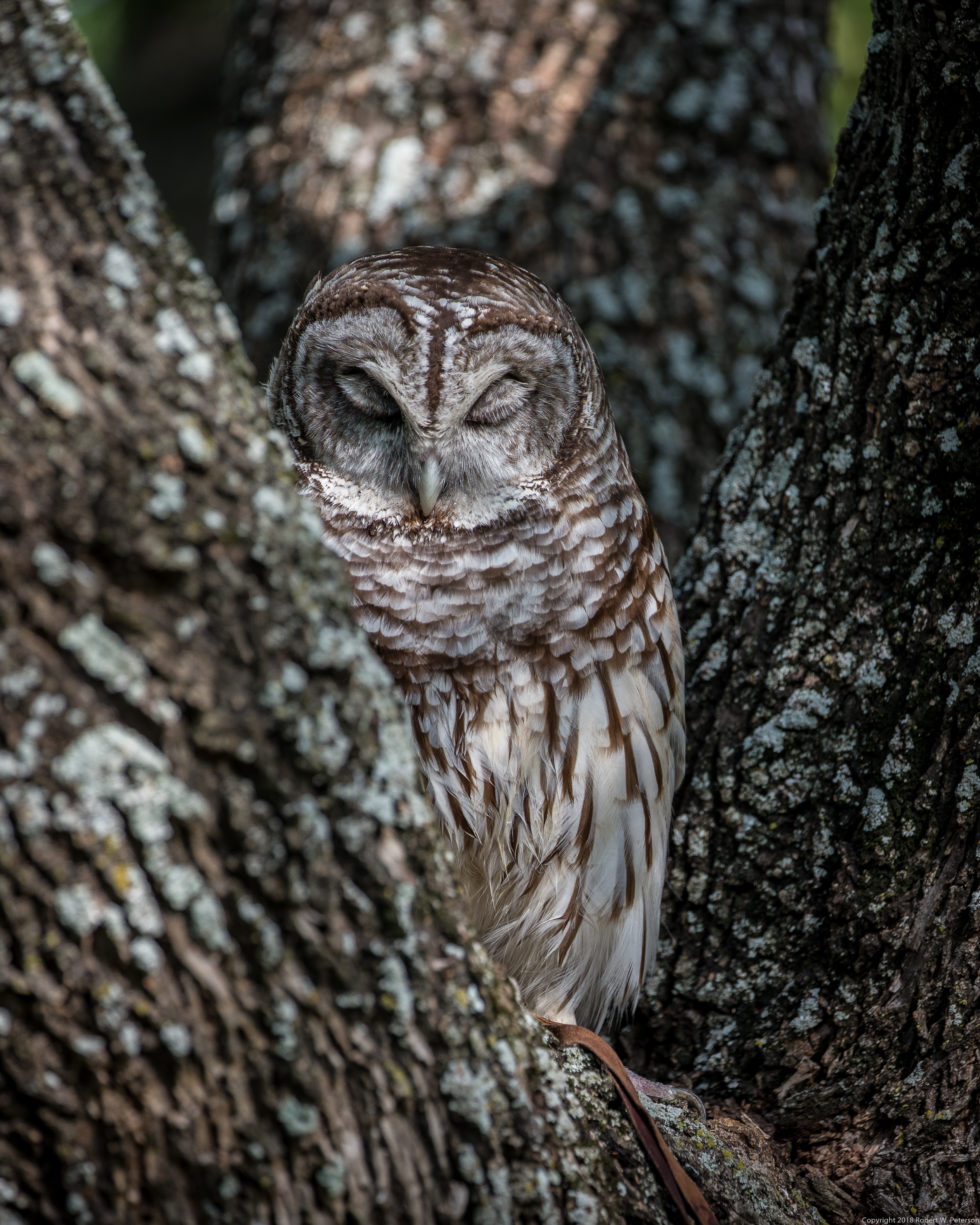
In this article, we have explored effective methods and strategies for keeping chipmunks away from bird feeders. By implementing these techniques, you can protect your bird food, prevent feeder damage, and reduce the risk of disease transmission. Let’s recap the main points discussed and offer some final thoughts on effectively managing chipmunk-related issues.
Recap of Strategies
We have discussed two primary approaches to deter chipmunks: physical barriers and natural repellents. Physical barriers, such as wire mesh cages or baffles, create obstacles that prevent chipmunks from accessing bird feeders. These barriers are highly effective in keeping chipmunks at bay. Additionally, we explored natural repellents, including aromatic plants, predator scents, and spicy deterrents. These methods exploit chipmunks’ aversion to certain smells and tastes, discouraging their presence near bird feeders.
Importance of Addressing the Chipmunk Problem
It is crucial to address the chipmunk problem to safeguard your bird feeding experience. Chipmunks have a voracious appetite and can quickly deplete bird food, leaving little for the intended avian visitors. Moreover, their constant gnawing and climbing can damage feeders, leading to additional expenses. Furthermore, chipmunks can carry diseases and parasites that may pose risks to both birds and humans. By keeping chipmunks away from your bird feeders, you promote a healthier and more enjoyable environment for your feathered friends.
The Effectiveness of a Multi-Pronged Approach
While individual strategies can be effective, employing a combination of methods often yields the best results. Chipmunks are intelligent and adaptable creatures, so utilizing multiple deterrent techniques can enhance the effectiveness of your efforts. Experiment with different approaches and find the combination that works best for your specific situation. Remember that what works for one person may not work for another, so don’t be discouraged if you need to try various methods before achieving success.
Encouraging Ongoing Vigilance
It is important to remain vigilant in your efforts to keep chipmunks away from bird feeders. Chipmunks are persistent and determined creatures, and their presence may require ongoing management. Regularly monitor your feeders for signs of chipmunk activity and make adjustments to your deterrent strategies as needed. By staying proactive and responsive, you can maintain a chipmunk-free bird feeding environment.
Additional Tips and Resources
If you require further assistance in managing chipmunks or other wildlife issues, there are several resources available. Websites dedicated to wildlife control, books on humane animal deterrents, and local wildlife authorities can provide valuable guidance. These resources offer additional tips, techniques, and insights to help you effectively address chipmunk-related challenges.
Take Action and Enjoy Chipmunk-Free Bird Feeders
Now that you are equipped with a range of strategies and knowledge, it’s time to take action. Implement the suggested methods, experiment with different approaches, and adapt them to suit your specific circumstances. Remember the benefits of maintaining chipmunk-free bird feeders: abundant bird food, undamaged feeders, and reduced disease risks. By applying these measures and staying persistent, you can create a welcoming haven for birds while keeping chipmunks at a distance.
Happy bird feeding, and best of luck in your endeavors to deter chipmunks from your bird feeders!
Frequently Asked Questions
FAQ: How to Keep Chipmunks Away from Bird Feeders
1. What are the most effective physical barriers to keep chipmunks away from bird feeders?
The most effective physical barriers to deter chipmunks from bird feeders include installing wire mesh or cages around the feeder, using baffles above or below the feeder, investing in squirrel-proof feeders, elevating the feeder at least 5 feet above the ground, and applying grease or deterrents to the feeder pole or specific areas.
2. What natural repellents can I use to discourage chipmunks from raiding bird feeders?
Natural repellents that can deter chipmunks from bird feeders include planting peppermint near the feeders or using peppermint oil, sprinkling cayenne pepper around the base of the feeders or mixing it with birdseed, spreading crushed garlic cloves or using a garlic spray, applying predator urine near the feeders, or strategically placing mothballs in chipmunk frequented areas.
3. Are there bird feeders specifically designed to be chipmunk-resistant?
Yes, there are bird feeders designed to be chipmunk-resistant. Look for feeders with mechanisms such as weight-activated perches that close off the feeding ports when a heavier animal lands on them. These feeders prevent chipmunks from accessing the birdseed.
4. How can I minimize seed wastage caused by chipmunks?
To minimize seed wastage caused by chipmunks, regularly clean up any spilled birdseed underneath the feeder, choose birdseed blends that are less appealing to chipmunks, and consider using feeders with mechanisms that prevent seed spillage, such as tray or hopper feeders.
5. What should I do if chipmunks are burrowing near my property despite efforts to keep them away from bird feeders?
If chipmunks are burrowing near your property despite efforts to keep them away from bird feed

Leave a Reply